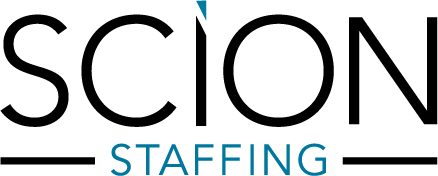
06 Oct Ask a Recruiter: What Should I Have on My Technical Resume?
We’re Highlighting our Technical Division this week and diving into what the top tech talent should include on their resume.
The resume. The place where you compile your accolades, tell your career story and hope that it’s the golden ticket that will help you land your dream job. That’s a lot riding on a piece of paper. Think of your resume as your elevator pitch for why you are the best fit for the job. An elevator pitch lasts between 20 to 30 seconds- and these days, that’s generous compared to the 6-7 seconds a hiring manager spends looking at a resume before deciding to keep it or throw it out and move onto the next. Our experienced recruiters at Scion Technical know a thing or two about resumes and hiring top talent. That’s why we asked them what they look for on resumes when screening for some of the best technical and IT openings in the nation.
Read on to see what they had to say.
#1 Quality over quantity when sending out resumes!
Emily McMonigle, Senior Manager of Technical Recruiting at Scion Technical shared her best tips for those wishing to level up their resume game. She says, “Being in the recruitment field for a while, I have become the go-to resume editor for my family and friends. People always tell me to review their resume and I cannot tell you how many times I have asked, ‘just one?’ and every time people are confused.” For each role you apply to, you need to tailor your resume to the industry you are applying to. If you want to further increase your chances of a potential call-back, make it company specific! If you are working with a recruiter, they will work with you to make your resume the best that it can possibly be for the specific role you are being submitted for.
#2 – Location
If you are just graduating from a school in Washington but you are applying to jobs in Texas with plans to relocate to Texas in a few weeks – put this next to your location. Hiring managers will dismiss your resume based on location alone (if it is not a remote role). Prevent this from happening and add in your plans to move next to your current address. Additionally, if you are living in the Pacific Northwest and are applying to a remote role in New York, express that you can work during EST.
#3 – Ask yourself what you want
A resume without a focus is the same as driving without a destination in mind. What kinds of roles are you applying for? If you are looking for your first role in IT and know you are interested about systems and networking, highlight your current experience or even coursework in these areas at the top of your resume. You can even give yourself a title under your name in the heading section of your resume, ie. “IT Specialist”.
#4- Highlight what makes you shine
You migrated your company’s on prem servers to Azure in under a year? You managed the entire launch of a new mobile application in under 6 months? Did your accounts as a Customer Success Manager generated over 4.5 M in your first year at a company? Tell your recruiter!
Your resume is your own personal story of the career you have built for yourself thus far. Your success excites us and listing your accomplishments does not make you cocky. Highlight, bold, and underline the shiny items that make your career your story! When you do that, it not only makes it easy for recruiters to see where you’ve excelled, but also gives you easy talking points to refer back to in an interview.
#5 Be Honest
Our Technical Recruiter, Ryan Morgan, stresses that, in general, people don’t hire developers and engineers to work on projects in which they don’t have experience with. He says, “You can think of it like speaking languages. I speak French personally. Let’s say that French is like the Java programming language. If I already speak French, then I will learn Spanish more quickly because I understand the syntax and grammar of French. If I can code in Java, I can learn the C# coding language much more quickly.”
That said, a company likely wouldn’t hire a bilingual customer support agent to speak English and Spanish if that person speaks French and English. They might learn Spanish quickly, but they really need to speak it now. All that to say this: it doesn’t help to put languages on your resume that you’re not proficient in. A lot of developers will put a million languages and tools on their resume, but when you sit down to interview them, they can’t actually use them.
It’s important to build a technical brand around a certain technical stack. If you prefer Javascript, it’s important to highlight the libraries and frameworks you can use inside Javascript. Same with the .Net framework and//or Java. I would also highly advise all developers to add a line below each position to highlight the tools, languages, libraries and frameworks that they worked on in that position to make it easy for managers and recruiters to see what you are proficient in.



